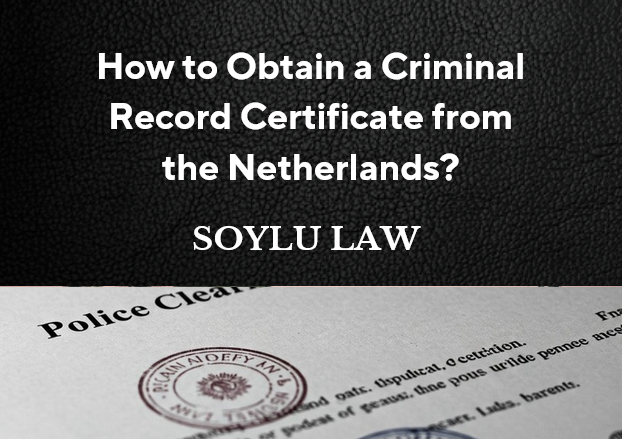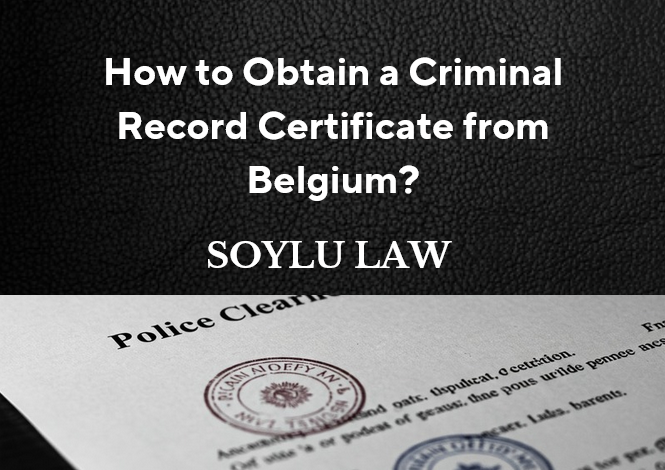The process of obtaining a criminal record certificate from France (Casier Judiciaire) is a crucial requirement for various international purposes, including employment, immigration, and legal proceedings. As France maintains one of Europe’s most comprehensive and centralized criminal record systems, understanding the proper procedures and requirements is essential for both French citizens and foreign nationals. The system, managed by the National Criminal Records Office in Nantes, processes millions of requests annually, with strict protocols ensuring data protection and authenticity. In this article, we will explore the detailed process of obtaining a French criminal record certificate, including prerequisites, application methods, and important considerations for international use.
Understanding French Criminal Records
A. French Criminal Record System Overview
The French Criminal Record, known as Casier Judiciaire National, is a centralized database maintained by the French Ministry of Justice. This system, established in 1980, serves as the official repository for all criminal convictions and certain administrative sanctions imposed by French courts. The database is managed from the city of Nantes, which processes more than 3 million requests annually from both domestic and international applicants.
B. Types of Criminal Record Certificates
The French system distinguishes between three different types of certificates, each serving specific purposes. The Bulletin No. 1 is strictly reserved for judicial authorities and contains a complete record of convictions. The Bulletin No. 2 is available to certain administrative authorities and contains most convictions but excludes certain minor offenses. The Bulletin No. 3, which is the most commonly requested type by individuals, shows only major convictions resulting in sentences exceeding 2 years of imprisonment.
C. Eligibility Requirements
Access to criminal record certificates is governed by strict regulations. Any person aged 18 or above can request their own Bulletin No. 3 certificate. The request must be made by the individual themselves, except in specific cases involving legal guardians or power of attorney. For French citizens born abroad or foreign nationals who have resided in France, additional documentation proving identity and residence may be required. The processing time typically takes between 5 to 10 working days.
D. Legal Framework and Privacy Protection
The management and issuance of criminal records in France are governed by the Criminal Procedure Code and stringent data protection laws. The system ensures confidentiality through various security measures, including encrypted data transmission and strict access controls. Records are automatically expunged after certain periods, depending on the severity of the offense and the type of certificate requested.
Prerequisites for Obtaining a Criminal Record Certificate
A. Essential Personal Information Requirements
Every application for a French criminal record certificate must include specific identifying information. The primary requirement is a valid form of personal identification, which includes details such as your full legal name, date of birth, place of birth, and nationality. For married women, both maiden name and married name must be provided. The French system is particularly stringent about the accuracy of personal information, as any discrepancies can result in delays lasting up to 15 working days or outright rejection of the application.
B. Documentation Standards
The documentation process requires several key pieces of evidence to verify your identity and eligibility. A valid passport or national identity card serves as the primary form of identification. If you’re applying from outside France, these documents must be accompanied by a certified translation if they’re not in French. For non-EU citizens, additional proof of residence such as a residence permit or recent utility bills may be necessary. All submitted documents must be issued within the last 3 months to be considered valid.
C. Meeting Eligibility Requirements
The eligibility criteria vary depending on your relationship with the French legal system and the purpose of your request. French citizens, whether residing in France or abroad, must provide proof of their French nationality. Foreign nationals must demonstrate a legitimate reason for requesting the certificate, such as employment requirements or visa applications. If the request is made through a legal representative, a notarized power of attorney document issued within the last 6 months is mandatory.
D. Translation and Authentication Procedures
For international use, the criminal record certificate often requires additional processing. The basic certificate is issued in French, and official translations must be completed by a court-certified translator. If the certificate is intended for use in a country that is party to the Hague Convention, an Apostille stamp must be obtained from the competent French authority. This authentication process typically adds 5 to 7 working days to the overall processing time. For non-Hague Convention countries, a more complex legalization process through diplomatic channels may be required, potentially extending the timeline to 20 working days.
Methods of Application
A. Overview of Online Application Platform
The French National Criminal Record Service provides a dedicated online platform called “Casier Judiciaire National” accessible through France-Connect. This digital service platform, available at casier-judiciaire.justice.gouv.fr, has been modernized in 2023 to provide a more user-friendly experience. The system operates 24/7 and processes more than 80% of all criminal record requests, making it the preferred method for obtaining certificates.
B. Account Creation Process
Creating an account begins with accessing the France-Connect authentication system, which serves as the government’s digital identity verification portal. Users must provide their email address and create a secure password that meets specific complexity requirements. The system requires two-factor authentication, typically through a mobile phone number verification process. Once the account is created, users must wait for a validation email which typically arrives within 30 minutes. This email contains a verification link that remains valid for 24 hours.
C. Digital Documentation Requirements
The online application requires specific digital documents to be uploaded in precise formats. All files must be in either PDF or JPEG format, with each file not exceeding 2MB in size. The required documents include a scanned copy of a valid government-issued ID, which must show all four corners and be perfectly legible. If applying from abroad, a proof of address dated within the last 3 months must also be uploaded. The system accepts documents in French or English; documents in other languages must be accompanied by certified translations.
D. Application Submission Guide
Following successful account creation and document preparation, the application process follows a structured sequence. The first step involves entering personal identification details exactly as they appear on official documents. Any discrepancy, even in accent marks, can result in delays. The system then guides users through a series of verification steps, including confirmation of the purpose for requesting the certificate. A unique application reference number is generated upon submission, which should be retained for tracking purposes. The entire online submission process typically takes 15 to 20 minutes to complete, assuming all required documents are properly prepared.
E. Processing Timeframes and Status Tracking
Online applications receive priority processing compared to paper applications. Standard processing time for digital requests is 2 to 3 working days, though this can extend to 5 working days during peak periods. The system provides real-time status updates through the user’s account dashboard, with email notifications at key stages of the process. If additional verification is required, the processing time may extend to 7 working days, and applicants will be notified via email of any required actions. The final certificate is delivered electronically through the secure platform and remains available for download for 30 days after issuance.
Application by Mail
A. Physical Documentation Package
The postal application process requires a comprehensive documentation package that must meet strict formatting standards. The core document is the Cerfa Form No. 13939, which must be completed in black ink and signed with an original signature. Applicants must include a photocopy of their identity document certified by local authorities within the last 3 months. For enhanced security, the French system requires a proof of residence such as a utility bill or rental agreement dated within the last 90 days. All documents must be secured together with a paper clip, not stapled, to facilitate processing.
B. Mailing Instructions and Address Details
Applications must be sent to the Central Criminal Records Office located in Nantes. The precise mailing address is: Casier Judiciaire National, 44317 Nantes CEDEX 3, France. The package should be sent via registered mail with acknowledgment of receipt for tracking purposes. The envelope must be clearly marked with “Demande de Bulletin N°3” in the upper left corner. For international mailings, adequate international postage must be included, and the country of origin should be clearly indicated on the envelope.
C. Mail Processing Timeline
Mail applications typically require longer processing times compared to online submissions. The standard processing period is 10 to 15 working days from the date of receipt. During high-volume periods, particularly between June and September, processing times may extend to 20 working days. The return delivery time must be added to these processing periods, which can vary significantly depending on the destination country.
Special Circumstances
A. International Application Procedures
Applicants residing outside France face additional requirements. They must provide an international address verification certified by their local French consulate. The application package should include a self-addressed envelope with sufficient international postage for return delivery. Processing times for international applications typically extend to 15 to 20 working days due to additional verification requirements.
B. Non-French Citizen Requirements
Non-French citizens must submit supplementary documentation to prove their connection to France. This includes a copy of their residence permit or proof of previous residence in France, such as tax documents or social security records. If the applicant has changed nationality, both current and previous identification documents must be provided. The processing time for non-French citizens may extend to 25 working days due to additional verification procedures.
C. Power of Attorney Submissions
Applications submitted through a legal representative require specific authorization documents. The power of attorney must be notarized and dated within the last 6 months. The representative must provide their own identification documents along with those of the person they represent. For international power of attorney documents, an Apostille or diplomatic legalization may be required, potentially adding 7 to 10 working days to the processing time.
D. Urgent Request Procedures
Emergency requests are considered only in specific circumstances, such as imminent court proceedings or urgent employment requirements. Applicants must provide documented proof of urgency, such as a court summons or employer letter with a specific deadline. Emergency requests must be clearly marked “URGENT” in red ink on the envelope or application form. While expedited processing aims for completion within 48 hours, this service is subject to administrative approval and is not guaranteed.
After Receiving the Certificate
A. Certificate Validity and Expiration
A French criminal record certificate, or Bulletin No. 3, maintains its validity for a specific duration depending on its intended use. For general purposes, the certificate is considered valid for 3 months from the date of issuance. However, some institutions may require a more recent certificate, typically within 30 days of submission. The document contains several security features, including a unique QR code and watermark, which help verify its authenticity. The certificate’s digital version remains accessible through the online platform for 30 days after issuance.
B. Authentication Procedures
The authentication process varies based on the certificate’s intended use and destination country. For use within the European Union, the original certificate typically requires no additional authentication due to mutual recognition agreements. For countries outside the EU that are signatories to the Hague Convention, an Apostille stamp must be obtained from the competent French authority, a process that takes 5 to 7 working days. Non-Hague Convention countries may require full diplomatic legalization, which involves authentication by both French authorities and the embassy of the destination country, potentially taking up to 15 working days.
C. International Translation Requirements
For use in non-French speaking countries, the certificate must be translated by authorized professionals. Only translations completed by a sworn translator (traducteur assermenté) are considered legally valid. The translator must provide their official stamp and registration number, and the translation must be completed within 30 days of the certificate’s issuance date. Both the original French certificate and its certified translation must be submitted together, and they remain valid for the same duration.
D. International Usage Guidelines
Using the certificate outside France requires careful attention to specific country requirements. Some nations may require additional verification steps or supplementary documentation. The certificate must be used within its validity period, and some countries may apply their own validity timeframes, typically ranging from 30 to 90 days. Users should verify specific requirements with the requesting institution or relevant embassy before submitting their documentation.
Additional Information
A. Cost Structure and Payment Options
The basic criminal record certificate (Bulletin No. 3) is provided free of charge by the French government. However, additional services incur specific fees: Apostille authentication costs 20 EUR, certified translations typically range from 40 to 60 EUR per page, and expedited processing, when available, requires a 50 EUR administrative fee. Payments can be made through secure online platforms using credit cards or bank transfers. For mail applications, payment must be made through international money order or bank draft in Euros.
B. Support Services Contact Details
The Criminal Records Office provides various support channels. Their telephone helpline operates from 9:00 AM to 5:00 PM (CET), Monday through Friday. Written inquiries receive responses within 48 hours. For urgent matters, a dedicated emergency contact line is available during business hours, but its use is restricted to verified emergency situations. All support services are available in French and English, with limited assistance in other major European languages.
C. Common Issues Resolution
Several common issues can arise during the application process. The most frequent include name discrepancies due to special characters or accents, which can cause delays of up to 7 working days. Missing or expired documentation typically results in a 15-day hold while new documents are requested. System technical issues are usually resolved within 24 hours, and affected applications receive priority processing once systems are restored.
D. Critical Information and Updates
The service provides regular updates through its official website. Processing times may vary during peak periods (June to September) or holiday seasons. Emergency requests are evaluated case-by-case and must be supported by official documentation proving urgency. The office maintains a 72-hour response time for urgent inquiries related to legal proceedings or employment requirements. Users should regularly check the official website for any changes in procedures or requirements.
CONCLUSION:
The process of obtaining a French criminal record certificate requires careful attention to detail and proper planning. Here are the key points to remember:
- Online applications through the official portal offer the fastest processing time of 2-3 working days
- All documents must be certified within the last 3 months for validity
- International use requires additional steps:
- Apostille authentication for Hague Convention countries
- Certified translations by sworn translators
- Country-specific legalization procedures
- The certificate remains valid for 3 months from the date of issuance
- Special circumstances, such as emergency requests or power of attorney applications, have specific requirements and extended processing times
- While the basic certificate is free, additional services like authentication and translation incur separate fees
This comprehensive system, while complex, ensures the integrity and reliability of French criminal record certificates for both domestic and international use.
For more help or consultation on this topic, you can contact us.



